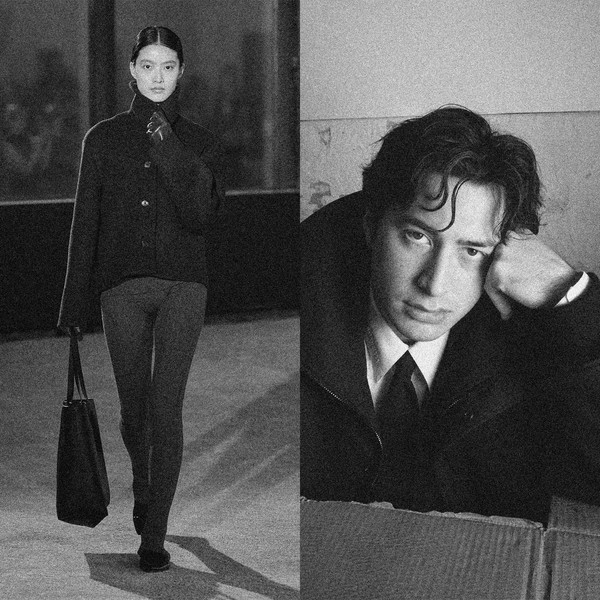Confessions of a Love Addict
Yes, it’s a real thing. And the symptoms are far more common than you think.

Love and addiction have been inextricably linked since the advent of bad poetry. Short of performing a Gallup poll, I can safely estimate that 95 percent of pop culture is capitalizing on our society’s all-consuming preoccupation with love: finding it, getting it, losing it…repeat. The earworm, “Might as well face it, you’re addicted to love.” Gyllenhaal’s ever-quotable, “I wish I could quit you!” And how could you forget, “I’m addicted to you, don’t you know that you’re toxic?” Perhaps the ubiquity of these themes is the reason why “love addiction” is often met with confusion. Sex addiction, sure—we’re all familiar with the tabloid headlines of what so-and-so A-list actor is in treatment for sex addiction. Sex is an act. It can be dangerous, compulsive, and—I’ll say it—totally rock n’ roll. With love being such an elusive and sweeping concept, can someone really be addicted to love? Absolutely.
With popularized 12-step programs around alcohol and substance abuse that have been in place for nearly 90 years, love addiction is a more recent addition to the roster. Unlike drinking or drugs, love is a more nebulous addiction—similar to gambling, it’s behavioral. What may surprise people is that love addiction has a measurable neurological effect similar to drugs. Like any substance linked to our reward center, there is an opportunity to abuse these systems. When you’re falling in love (or lust) the “pleasure” neurotransmitter dopamine floods our brain’s reward center, and it is worth noting that, “amphetamines, cocaine, and opiates like heroin, morphine, and OxyContin, trigger these same neural circuits.” With neurotransmitters like dopamine, serotonin, and oxytocin motivating the vicious cycle of euphoria and despair, love can be just as addicting as any conventional drug.
Love addiction is complicated in that it’s unique to each person and experience. Some love addicts are preoccupied with the thrill of new love, others with the fear of losing it. Addiction to love can manifest in a compulsive need for validation, obsessive tendencies, impulse control, sexual acting out, or co-dependence. No two addicts are the same. To paint a clearer picture of this deeply misunderstood addiction, I sat down with Taylor* and Ilana*—two love addicts and friends in recovery—who shed light on the lived experience of love addiction, misconceptions, and nuance of the addiction itself.
How would you define love addiction to someone who knows nothing about it?
Taylor: Love addiction is like any addiction in that there's like a biochemical aspect to it, and it's nature versus nurture. What traumas have arisen that then alter your subsequent behavior to get into addictive patterns? And I think addiction is often a form of self-medicating. In the case with love addicts, they find that past inciting incidents have formulated in their mind. I think a lot of it starts in childhood. But what is it? It’s exactly what it sounds like. You’re addicted to love, you’re addicted to people, to situations, to chaos in a way that becomes compulsive.
Ilana: Similar to alcoholism, a behavior is considered an addiction when it starts to negatively affect the rest of your life. Not all people who drink are alcoholics, but drinking becomes a problem when it starts to affect your health, livelihood, friendships, [and] ability to function on a daily basis. Love addiction functions in the same way. When the obsession and preoccupation with love starts to affect your daily life. What makes love addiction more complicated is that—unlike drinking, where a relapse is clearly defined as ‘taking a drink’—love addiction is far more nebulous.
Taylor: Exactly, the umbrella is so wide. Love addiction manifests in so many different ways. It can be comorbid with certain mood disorders or issues like OCD or attachment styles. Love addiction is different from other types of addictions because it’s about developing a healthier set of boundaries and habits to give you a better relationship with love. In AA it’s not about developing a healthy relationship to alcohol, it’s about learning to live without it. For love addicts, it’s re-learning how to have love in your life.
Love addiction is often paired with sex addiction—how are they connected and how are they different?
Ilana: Sex is so Intertwined with love that the addictions often go hand-in-hand. I would identify as a sex and love addict, and I know Taylor only identifies as a love addict. For me, sex is a very concentrated version of the issues that manifest in love addiction—impulse control, fantasy, validation, power dynamics. For some people, sex is an extension of the intimacy they have in relationships, for others, sex can be an act devoid of intimacy. I will say though, that in terms of “acting out” addict behavior, sex can be an arena that lends itself to the dangers of addiction: lack of concern for your health, risky behavior, substance abuse, and unresolved issues around validation and self-esteem.
Taylor: For me, sex was definitely a huge part of the way I would act out in my addiction, but that wasn’t the area where I had the worst impulse control. My love addiction was more centered around obsessive behaviors in dating—texting, hyper fixating, co-dependence.
What does it look like to be “in” your addiction?
Ilana: Again, it’s very unique to the individual, but I did read somewhere that there are four types of love addicts: obsessive, codependent, narcissistic, and ambivalent. I would say I’m an odd combination of obsessive and ambivalent. My therapist calls this “disorganized attachment.” I will be totally preoccupied with a person, putting everything aside—my health, my time, my dignity [laughs] to spend time with someone—but when it comes to the actual emotional intimacy part, I panic. Ironically, love avoidants make up a large portion of love addicts.
Taylor: I am definitely in the obsessive, co-dependent camp. This means you find yourself in relationships where you become isolated. You are no longer present in the rest of your life. You are obsessing over a person, over everything they say, and everything you say. You feel emotionally empty and bereft of love unless you are getting attention from that one person. There is a lot of codependency in fantasy and obsession. Your brain is firing over one thing over and over again. Obsessions also don’t have an expiration date. You can find yourself obsessing over someone ten years after a relationship.
Ilana: I recently read an essay that Alanis Morisette wrote about love addiction. She said, “Love addiction comes at the cost of reality, at the cost of setting boundaries, at the cost of self-care, at the cost of following through with what we need or what we want, or what we value or what our life missions are. It eventually renders things unmanageable like any other addiction.” She also talks about how there are love addicts and love avoidants, and it’s very common for those to pair together and create a toxic dynamic.
Taylor: Very true. Some codependent love addicts have the idea that they can “fix” the person they are with which drives a lot of the obsession. Love avoidants are usually the perfect target for these fixations. They are elusive and unsteady which makes the love addict double down. Love addicts love an emotionally unavailable person.
"It feels like a literal drug. Almost identical to cocaine. It’s very physical—your heart starts racing, your palms get sweaty—it’s absolute euphoria. And with any high like that, there is a crash."
Was there a moment when you realized it was a problem?
Taylor: It really took my therapist bringing it up and suggesting I go into a program. She said, “This is a really nasty addiction. If you were doing heroin, would your friends be reacting to you in the same way?” It scared me that the answer was “Yes.” I was in a particularly codependent relationship in college that manifested in incredibly erratic behavior and moods that worried my friends. I self-isolated, I stopped doing homework, I was so consumed and devastated that I had to leave school for a year. All my self-care went to the wayside. It affected all my normal functioning like eating and sleeping. Even after the relationship ended I would relapse into periods of depression and obsession.
Love addiction can often be confused with Borderline Personality Disorder. Sometimes those two things are co-morbid but they share similarities: fear of being alone, fear of abandonment, acting out to win people back. It’s a vicious cycle.
Ilana: In my mid-twenties I realized I had a hard time identifying emotions until they were extreme. I conflated love with obsession. I didn’t feel loved until I was in a codependent and controlling relationship. It took a very inappropriate dynamic with one of my bosses to realize I had a problem. I was very susceptible to power dynamics and how validation gave me a sense of control. I had no internal system of validation and self-worth so I relied exclusively on external sources to figure out how to feel about myself. Combine that with an abusive boss, I was in way over my head. That’s when I knew I needed help.
What does the “high” of the addiction feel like in real time?
Taylor: It feels like a literal drug. Almost identical to cocaine. It’s very physical—your heart starts racing, your palms get sweaty—it’s absolute euphoria. And with any high like that, there is a crash.
Ilana: Like with all drugs it's always about getting just a little bit more. It’s never enough. Your need grows incrementally, so in the moments you aren’t getting what you need—be that validation, sex, attention, affirmation, even a text—your body starts to go into withdrawals. You start to panic and it becomes an all-consuming need.
What does withdrawal feel like in love addiction?
Taylor: Withdrawals can be very dangerous. When you are in a “high” everything is incredible, you feel like you’re on top of the world, everything is going to be okay, every fear you had about yourself is gone, but the crash is devastating. You feel a sense of doom, a huge amount of shame, you are overthinking and second guessing everything you’ve ever done. It’s total darkness. Your body physically aches. You feel like you’ve been hit by a truck. For some people, “acting out” is behavior that puts them at risk (acting out sexually, substance abuse), and others turn it on themselves. The shame can spiral into self-harm.
Ilana: Withdrawal can make you do some crazy things. I was incapacitated with a terrible illness that landed me in the ER. The object of my fixation was in town and invited me to a bar. Less than 48 hours after being in the hospital I had to go see that person. I could barely eat, my whole body was shaking and I still went out to a bar because I needed to see them. I needed the fix. It came before anything else.
"When you are in withdrawals or on a down-swing, you can be consumed by the fantasy of catastrophe. That it’s all falling apart, that you are the worst person in the world, that you are unlovable. As much as fantasy can add to a high, it can add to the low."
You mention fantasy and validation—how does that play into love addiction?
Ilana: For some people, obsession turns into fantasy. They get the same high from imagining different scenarios as they are living them out. Through fantasy, you put that person on a pedestal. You get addicted to the fantasy and unable to connect to real life experiences.
Taylor: On the flip side there is negative fantasy. When you are in withdrawals or on a down-swing, you can be consumed by the fantasy of catastrophe. That it’s all falling apart, that you are the worst person in the world, that you are unlovable. As much as fantasy can add to a high, it can add to the low. You create a shame spiral.
What does rock bottom look like to a love addict?
Ilana: Like any addict, rock bottom is different for everyone. In terms of love addiction, people have to draw their own bottom lines—these are behaviors that define their behavior boundary that means they have “fallen off the wagon.” For some people it might be flirting with coworkers. For others it could be as severe as self-harm. Maybe it’s buying a plane ticket to see a person you dated for less than a week. For a love addict, there can be a lot of bottom lines.
Taylor: The plane ticket…classic! I’ve had a lot of different rock bottoms. There was one situation where I was “dating” someone—I put that in air quotes because we were doing everything people do when they date but we weren’t officially together. He was very hot-and-cold, and at one point he flat out said, “There is no us.” It was paralyzing. I slept for days. I cried, I couldn’t eat. It prompted suicidal ideation. When that relationship ended I bleached my hair, got seven tattoos, started binge eating, smoking, and drinking.
Can you explain the process of recovery?
Taylor: It started for me in therapy and then I found a 12-step program. I started working with a sponsor and undergoing a huge self-evaluation of my impulses, regrets, and past traumas. You take an inventory of your values and try to pinpoint where the addiction transgresses those values. You identify the places where you get “high.” In the program you start outlining what you define as your “bottom line” behaviors. These are behaviors that jeopardize your sobriety. For me, a bottom line is texting my exes. Or it could be trauma dumping with a new friend or coworker. Trauma bonding is a very easy way to expedite a sense of intimacy.
Ilana: Trauma dumping is huge. Bottom lines for me are anything that sparks my addiction. This could be DMing an old fling, binging on dating apps, cyber-stalking that leads to obsession and hyper fixation.
Taylor: I love the term “digital self-harm.” That means you intentionally go down Internet rabbit holes to fuel your shame spiral. It sounds crazy but sometimes I have to set limits on the music I listen to. So much music can fuel fantasy and obsession.
Ilana: After working through your bottom lines in recovery and you (and your sponsor) feel you’re ready to start dating, you outline a dating plan.
Taylor: Dating plans are a way to make sure you aren’t breaking your bottom lines so you are dating in a “sober” way. For example, if I start dating someone I limit myself to seeing them only twice a week in the beginning. I set limits on what dates to engage in physical intimacy. I have a plan for who to reach out to people who keep me accountable if I feel myself slipping.
"This might be a hot take, but I think there’s a bit of a love addict in all of us. I don’t know if anyone is exempt from that cycle of euphoria and devastation. Not everyone is a love addict, but these feelings are universal."
Do you feel the need to disclose that you are a love addict to friends, family, or romantic partners?
Ilana: If you feel that there is a person who can be a supportive point of contact in your process of recovery, you can disclose at your own risk. But, you don’t owe anyone that information.
Taylor: Totally agree. It is complicated in romantic situations. Some people might be confused or hurt at the boundaries you are setting with them so sometimes it’s helpful to disclose your recovery so they can respect your process without taking it personally.
Ilana: Because there is so much shame and confusion around love addiction, it can be terrifying to disclose that information. Trust is incredibly important. There are also programs for friends and family members of addicts. For every friend that is supporting you, make sure they have a network as well.
What would you recommend to someone who thinks they might be a love addict?
Taylor: If you have a therapist you can ask their professional opinion on whether or not a 12-step program is right for you. There are also quizzes to take online but ultimately it is up to you to decide if you need to take action to stop living out your destructive behavioral patterns.
What are the biggest misconceptions about love addicts?
Taylor: I think the term evokes an idea of this creepy, needy, anxious person. Someone that is pathologically clingy.
Ilana: People think that a love addict is some desperate and viciously horny person. The shame tied up in that perception was what kept me away from seeking help or even admitting I had a problem for years. I found it all so embarrassing.
Taylor: The truth is that love addicts are all around us and their behavior isn’t even that obvious.
Ilana: We live in a love-obsessed society so “love addict” behaviors are hard to clock. Sometimes they are even celebrated or encouraged, especially in pop culture. Most love songs idolize breaking someone’s boundaries or letting your own be broken.
Taylor: Anyone can be a love addict: people who have been married for 10 years, people who have been single for years, women, men, non-binary people, parents, and all ranges of sexualities.
Ilana: This might be a hot take, but I think there’s a bit of a love addict in all of us. I don’t know if anyone is exempt from that cycle of euphoria and devastation. Not everyone is a love addict, but these feelings are universal.
Want more stories like this?
Is Monogamy So Out It's Kinky?
Has Toxic Self-Care Sparked An Empathy Crisis?
Is Marital Hate Really "Normal"?




